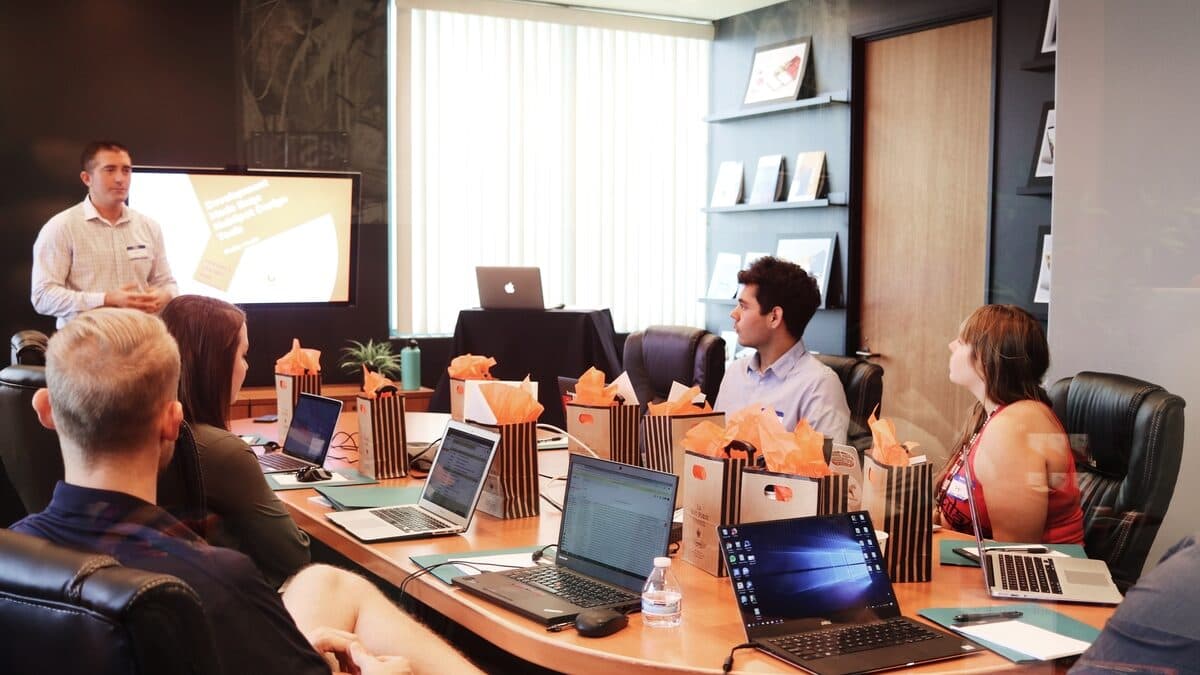As we decompress after a busy but largely transitional year, it’s a good time to reflect and to consider where technology will take every organisation in the year ahead.
Industries that experienced significant headwinds in the past two years must look forward and accelerate operations with software solutions that support digital transformation.
The idea around a global recovery from the pandemic is welcome. But organisations now more than ever are faced with navigating an accelerating digital world.
Let’s look back at what the past two years have taught us:
Crunch time for digital commitment
It’s time to commit to change. We’ve had it drilled into us that the past two years have driven an enormous change in mindset and thinking – and it has – but that still hasn’t translated into a commitment to real action at some organisations.
Some may have believed the pandemic would end quickly and held off on change projects they should have committed to a year ago. Others were too busy dealing with business-as-usual challenges.
In logistics, for example, we’re only now seeing strong digitisation of paper-based forms and contracts. So, 2022 is emerging as a year of renewed commitment, depending on your starting point.
We need a flexible, digital working model for 2022
Many companies I speak to still haven’t formally or properly communicated their go-forward working models to staff for 2022 and beyond. That could become a problem. After 2020 and 2021, employees don’t need more uncertainty.
They’re also changing what they want out of work and showing signs in sentiment surveys of gravitating towards digitally-minded organisations that can meet their needs and have a vision for moving forward.
Communicating a flexible working model now will set expectations, influence internal culture and provide the right foundation to chase other digital initiatives.
Being permanently digitally inclusive
In permanent asynchronous workplaces, there’s a danger that remote workers are treated as second- class citizens, with systems and processes favouring those in the office.
There’s also significant potential for misunderstanding: a busy remote worker may not be immediately reachable because they require quiet time to focus and complete tasks.
Organisations need to set expectations for what is and isn’t acceptable in terms of how work is performed or delivered to avoid conflict or resentment among colleagues not physically in the same space. Organisations that think and act inclusively will be best placed to move forward.
Raising everyone to be digital
We’ve seen it in pockets these past few years: skills’ guilds’ in many large organisations, centres of excellence and straight-up digital literacy programs. But 2022 is the year these initiatives are poised to jump into the business mainstream.
Gartner predicts citizen developers – people in the business with coding skills but who aren’t part of IT – will outnumber actual coders by four to one within two years.
Organisations that previously could not afford to assemble large developer teams will have them by default. Digital projects will multiply. But organisations need to invest in skills to make this happen and show commitment to their people.
Welcoming new digital natives
Digital skills will also come in from outside. For people born in 2000, 2022 is the first year they will graduate and enter the workforce. They’ve developed very different ways of consuming information from previous generations and will become your employees, and perhaps your customers.
Workplace and customer experiences need to be tailored for this new generation. At the same time, employers must maintain the knowledge and experience of a twilighting generation and harness it for mentorship opportunities for the new generation.
New digital ethics checkpoints
AI/ML and robots get enormous attention, yet deployments have been limited even up until recently by cost, resource-intensive setup requirements and other intricacies.
The pandemic brought the cost of entry down substantially, and usage skyrocketed to solve pain points like customer service.
But the ongoing role of bots in business-as-usual isn’t necessarily well-defined. Similarly, organisations are grappling with where to draw a line on collaboration technologies such that they are seen as valuable and not surveillance aids.
As new ways of working become permanent, several digital tools were set up in the past two years and will undergo a real ethics test.
A renewed focus on data privacy
Personal and movement-based data has been collected for public safety over the past two years, but not everyone trusts the parties that collect, scan, or store it.
On the evidence, many organisations will – or need to – spend 2022 reviewing data handling, storage and access permissions and rules.
Digital tools make data collection easy but may also sit outside corporate guardrails and standards. Organisations must ensure every part of their data infrastructure, whether owned or outsourced, meets standards for storing personally identifiable information (PII).
This will protect data collected through digital forms or in the course of doing business or mitigate the possibility of accidental disclosures contained – and otherwise unnoticed – in third-party data.
As we wrap up 2021, there is no better time than now to prioritise the needs of today’s workers and successfully embrace the digital road ahead with automation software and programs that keep our organisations moving forward by retaining employees and delighting customers.
Keep up to date with our stories on LinkedIn, Twitter, Facebook and Instagram.

